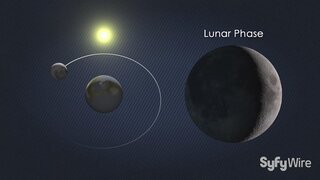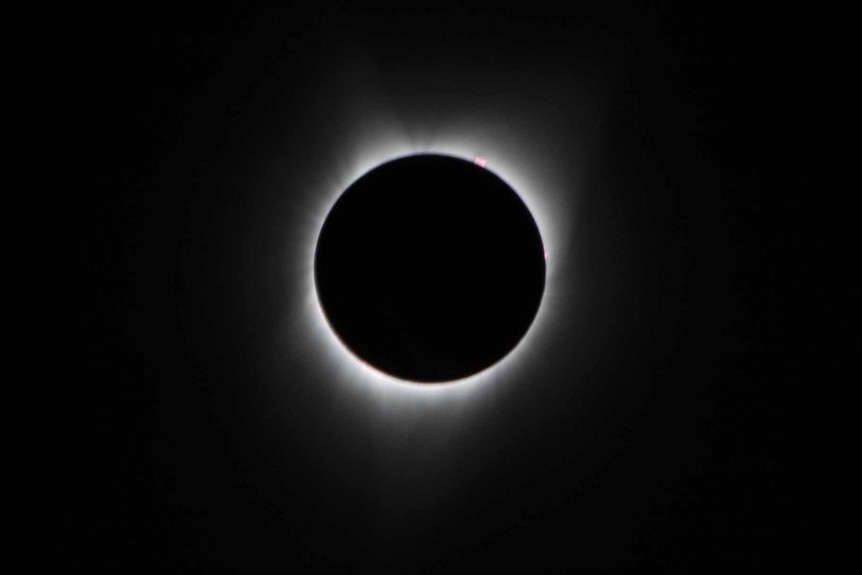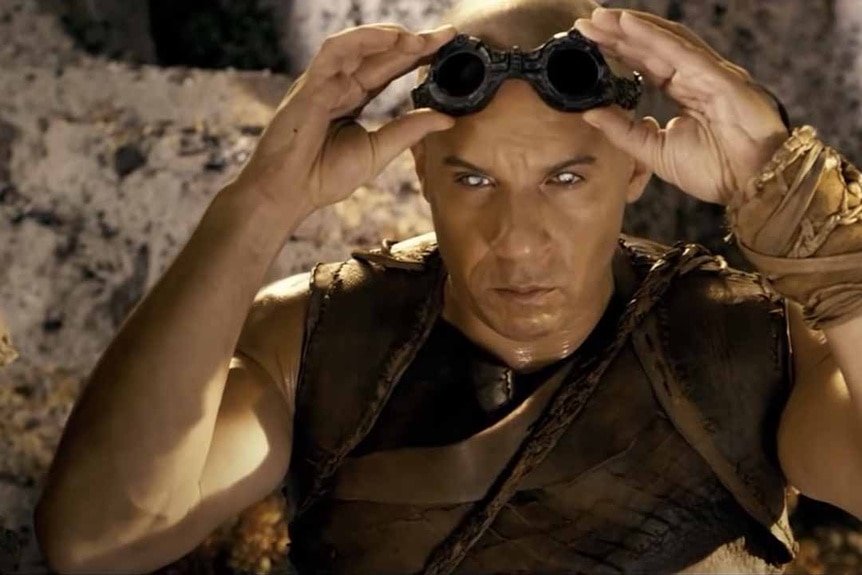Create a free profile to get unlimited access to exclusive videos, sweepstakes, and more!
Based on Google Search Terms, Eye Injuries Apparently Spiked During North American Solar Eclipse
When they say not to look at the Sun, they're serious.
Before Vin Diesel was Dominic Toretto, the patriarch of The Fast Saga's high-octane found family of racecar drivers, he was Richard B. Riddick, an extraterrestrial mercenary turned career criminal, in the 2000 sci-fi horror flick Pitch Black. Riddick’s most notable feature, aside from Diesel’s trademark brand of machismo, is a pair of surgically modified eyes (according to the Pitch Black explanation, the precise in-universe nature of Riddick’s eyes remains unclear) which shine when they catch the light.
Riddick’s eyes help him see in the dark but ordinary light levels are painful, requiring the use of light-blocking goggles pretty much all the time. Fortunately, they’re the perfect eyes for surviving on a deadly planet filled with flesh-eating monsters during a rare solar eclipse. It’s important to have the right eyewear for the task at hand.
Google Searches for “Hurt Eyes” Spike Following Solar Eclipse
In another part of the galaxy and in the real world, a total solar eclipse traced a path across parts of North America on April 8, with tens of millions of people in the path of totality. While folks turned out to watch the eclipse in huge numbers, it seems that some of them didn’t heed the safety warnings, based on the frequency of certain Google search terms.
Searches for phrases like “why do my eyes hurt?” saw a huge spike shortly after the eclipse. In fact, Google Trends shows searches for “hurt eyes” over the last 30 days were practically nonexistent, before a rapid uptick on April 8. There was a smaller spike on April 9 and searches fell back to the background rate by April 10.
For More on Eclipses:
Space Station Crew Captures Stunning View of the Eclipse from Space
Enjoy Those Total Solar Eclipses While You Can, Because Someday They'll End Forever
Bill Nye Talks Solar Eclipses and Meeting World-Ending Threats with Hope
That’s more or less what we expected to happen. We saw pretty much the same exact trend surrounding the total solar eclipse in 2017, when roughly 150 million people were in the path of the eclipse in the United States alone. Despite the massive number of viewers, only about 100 injuries were reported across the U.S. and Canada. There were certainly more injuries than that, but most were minor and resolved on their own.
The good news is that eye injuries from staring at the Sun are hard to get. Your eyes are adapted to not want to look at the Sun. It’s so bright that it’s painful, your eyes water, you squint, and you look away. During a solar eclipse, the risk of injury is increased because you’ve got a reason to want to look, and the decreased amount of sunlight hitting your eyes makes it easier to stare at. If you’re not careful, you can find yourself looking at a star dim enough to not be painful but bright enough to burn you.
How Eclipses (and Other Bright Lights) Injure Your Eyes
When sunlight enters your eye, it strikes the retina where light-sensitive cells capture photons and translate them into electrical signals your brain can interpret. It has evolved specifically for taking in light, but it has limits. Incredibly bright light sources like the Sun, laser pointers, or welding equipment are so bright that they can burn your retina, causing solar retinopathy.
Tucked neatly inside your eyes, your retinas aren’t expecting to get burned and they don’t have the machinery for telling you when things are getting too hot. Your retinas don’t feel pain, so you may not notice an injury until hours or days after it has occurred.
If you have experienced retinal burns, an eye doctor will be able to see them during an examination. While burns from a laser pointer will be circular, burns from an eclipse can be crescent shaped, a snapshot of the Sun’s semi-obscured form at the moment of injury. Minor cases of solar retinopathy can cause watery eyes, headaches, light sensitivity, and soreness. It can be unpleasant but usually resolves in a few days.
More severe injuries can cause blurred vision, pain, loss of central vision (blind spot) or distorted vision including straight lines appearing curved or objects appearing farther away than they are. Serious injuries may be irreversible. If you are experiencing a blind spot, distorted vision, altered color or any other vision symptoms which haven’t resolved after viewing the eclipse, making an appointment with an eye doctor is a good idea. And get yourself some of Riddick’s goggles (aka some approved eclipse glasses) before the next time you go sungazing.
Catch Riddick in Pitch Black, available from Universal Pictures.
































